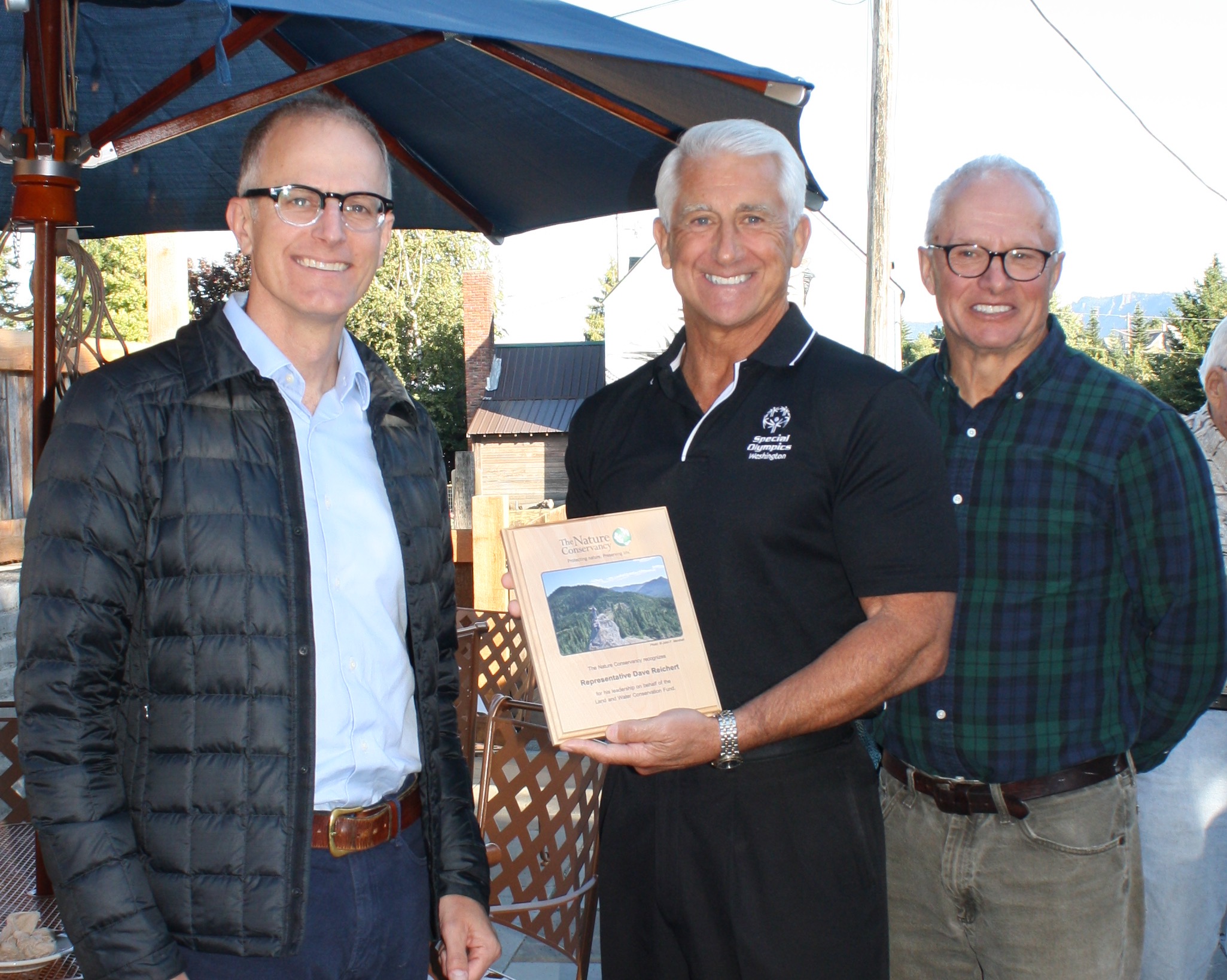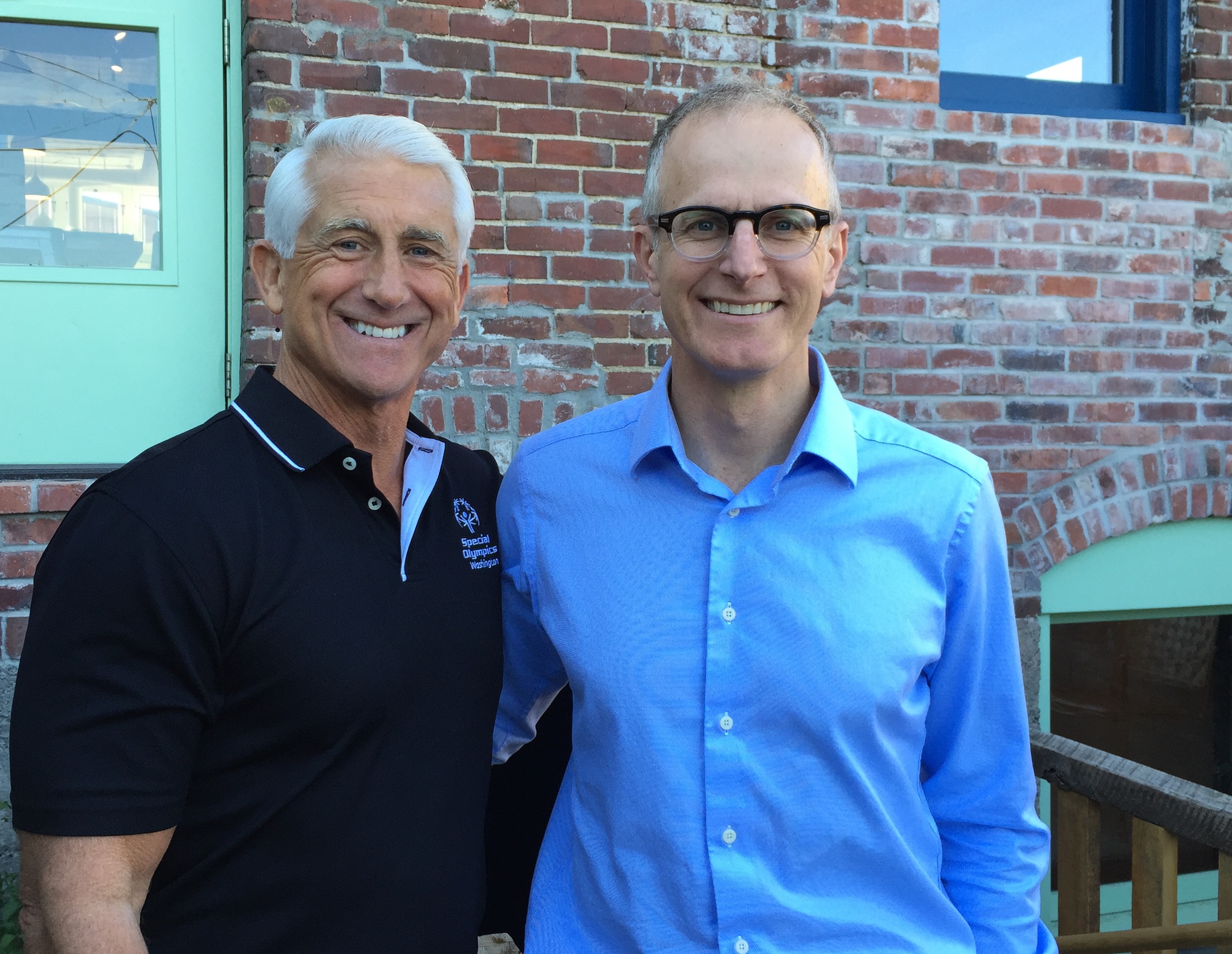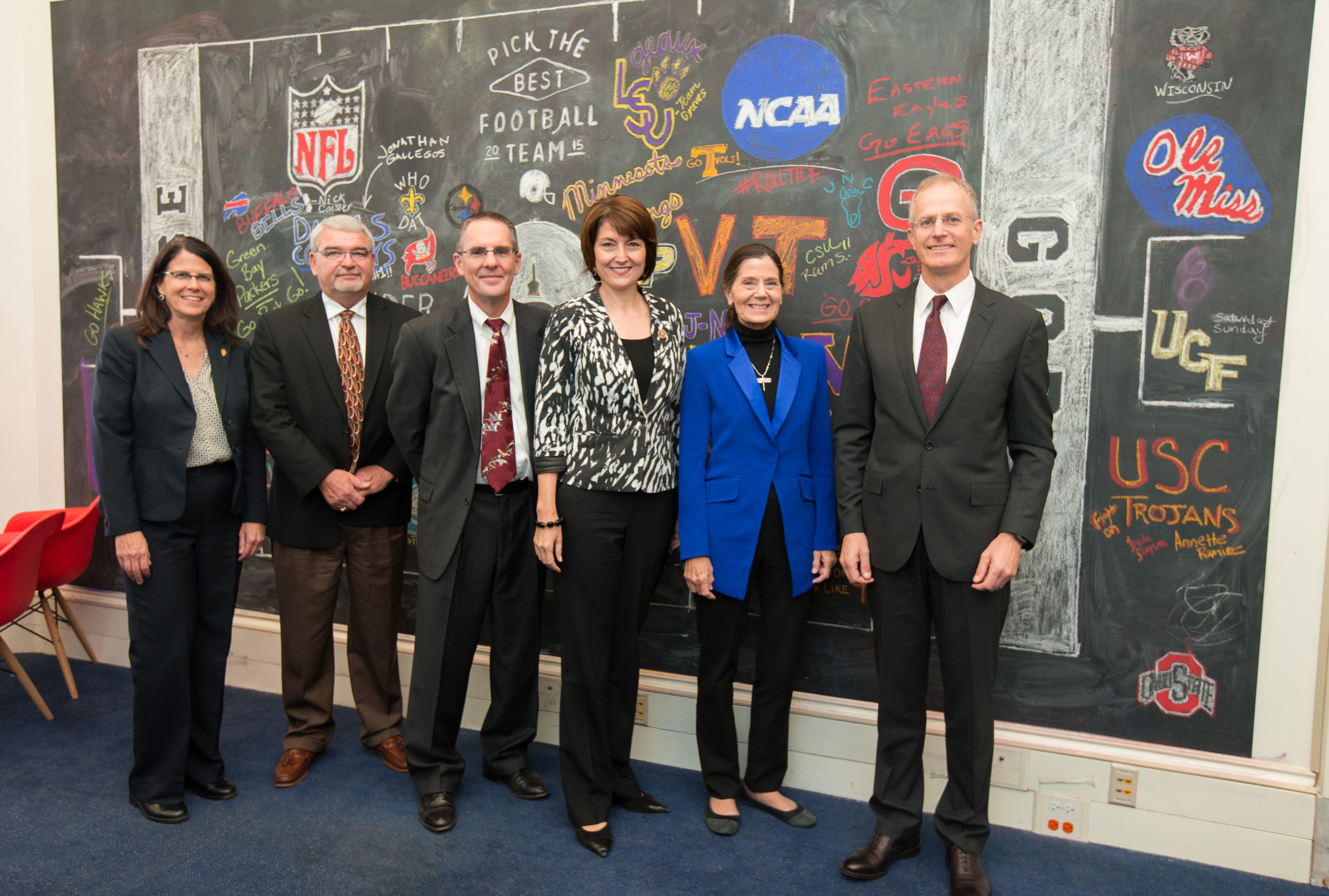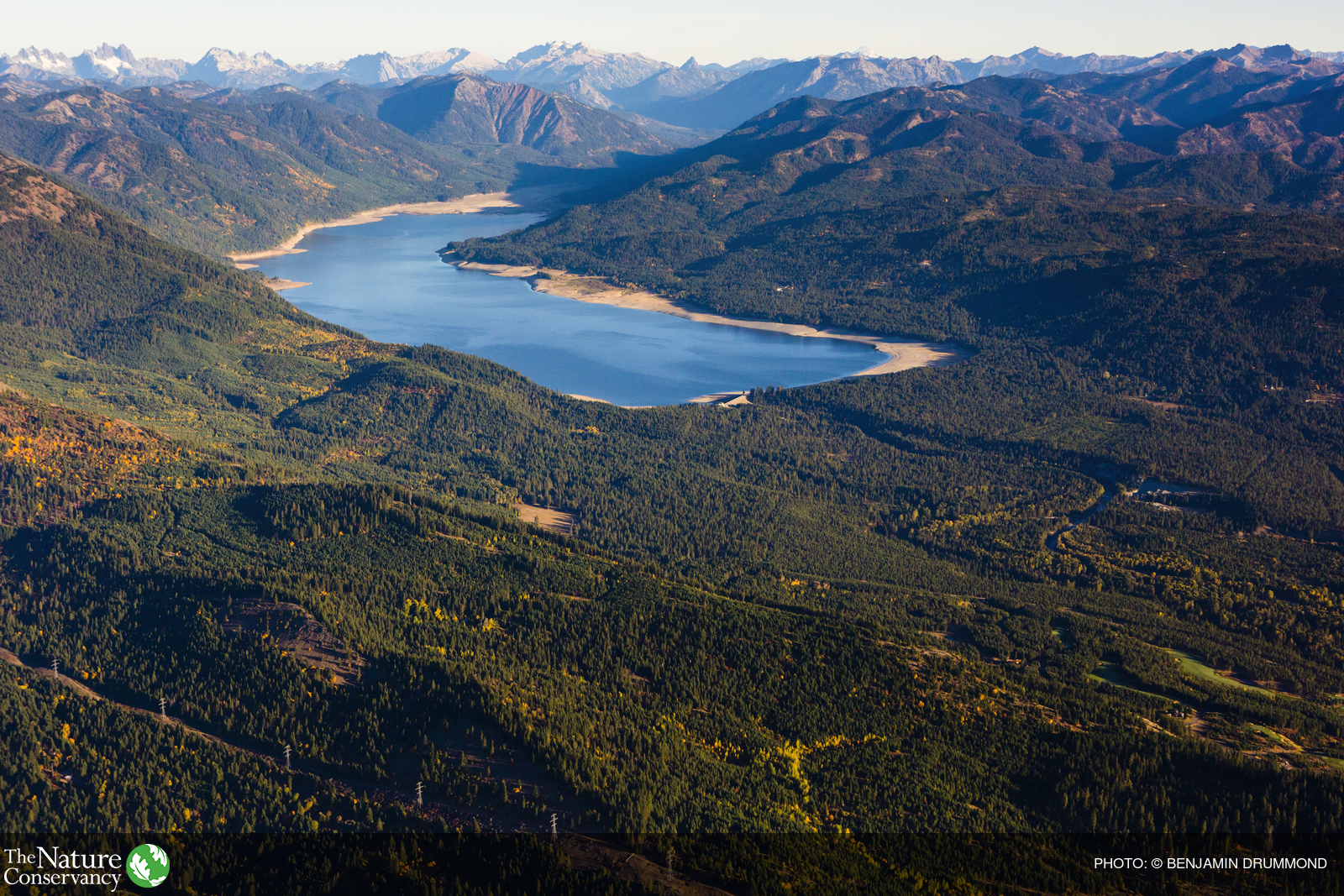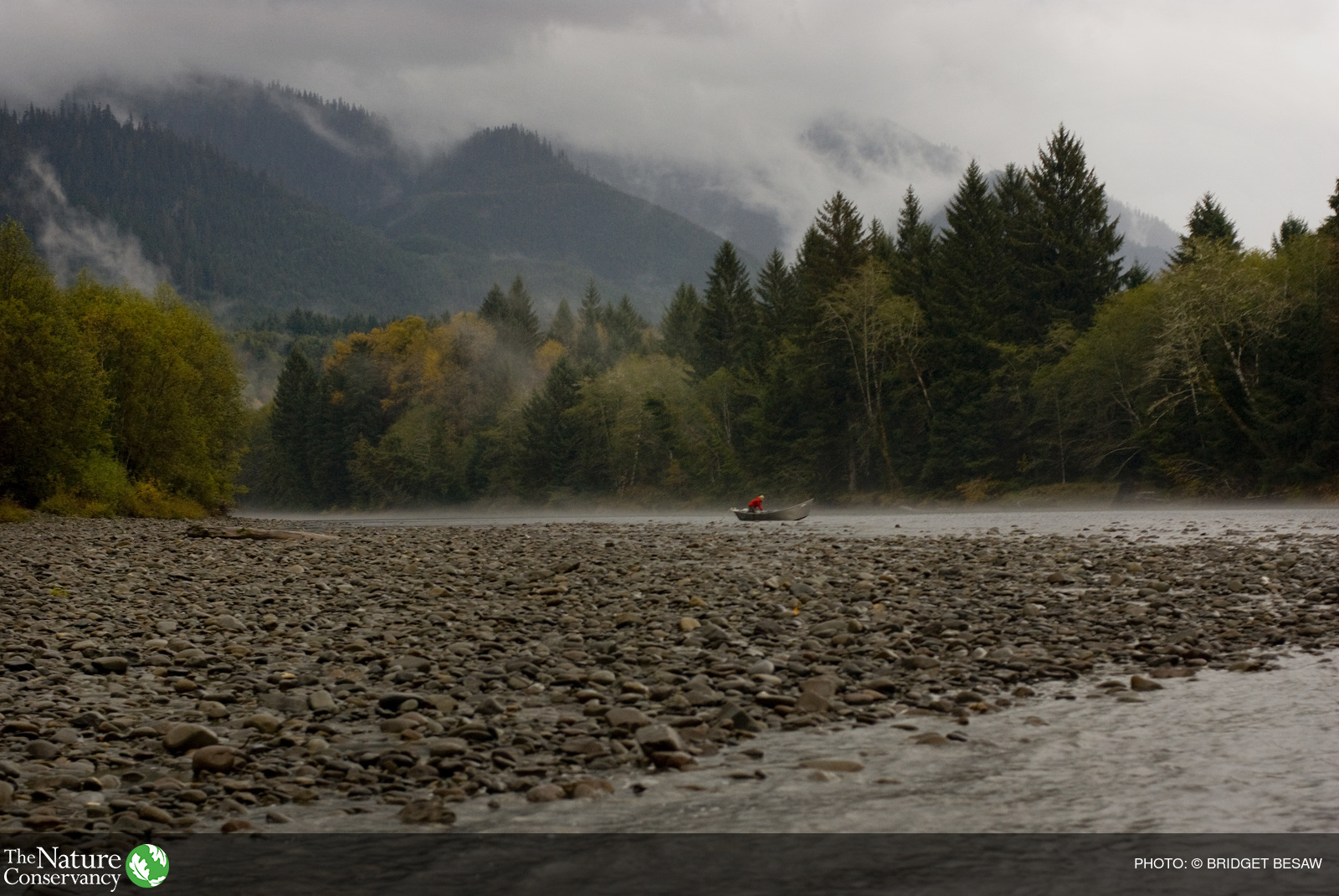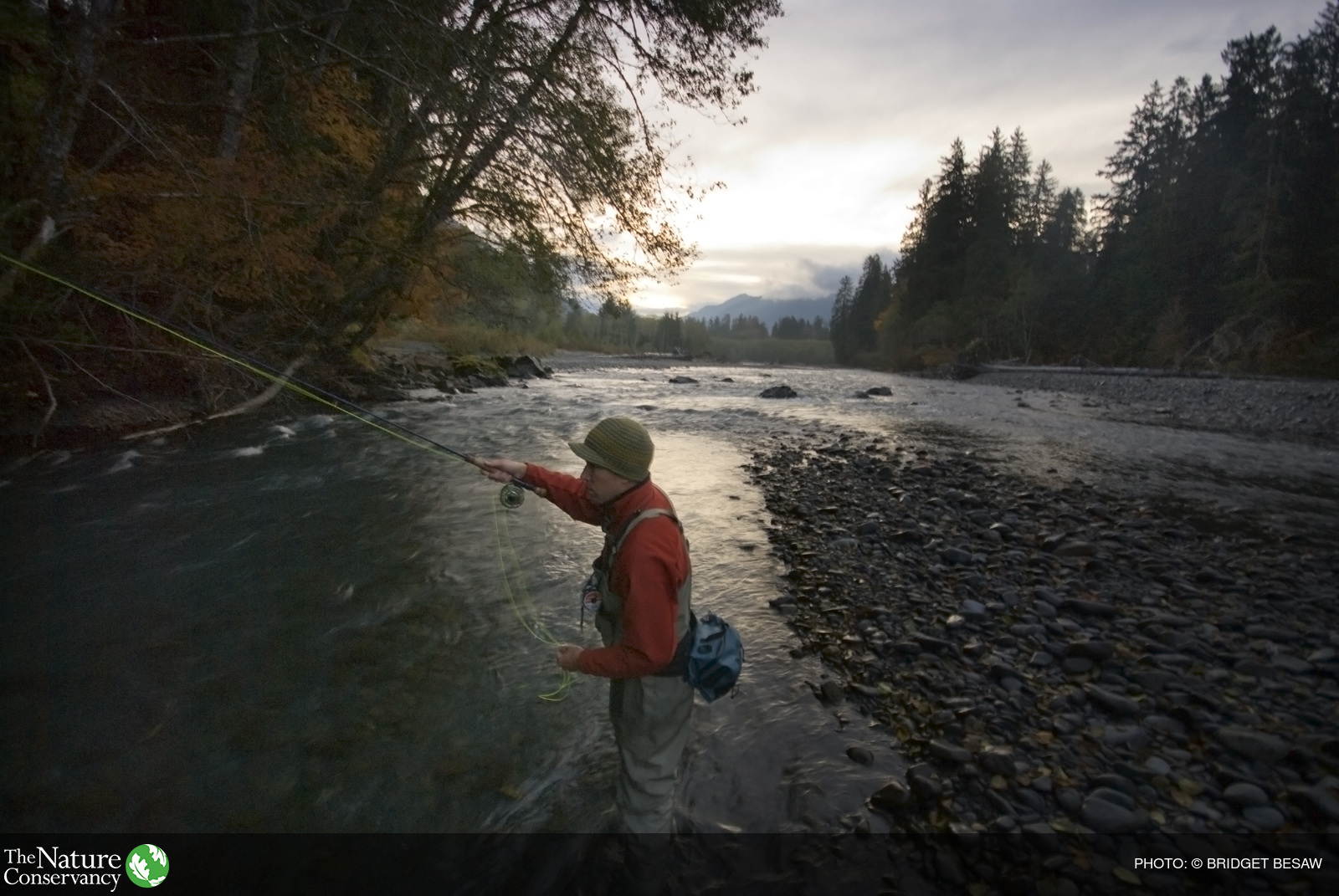Speak up for nature in Olympia this session on an upcoming Advocacy Day.
These Are Our Top Priorities for the State Legislature
Saving Open Space for the Community through WWRP
Written by Danica Johnson, Washington Wildlife and Recreation Coalition
Photographed by Benjamin Drummond and Whidbey Camano Land Trust
Residents of Camano Island want to take advantage of their home’s beautiful coastline by creating more public space for the community.
The Whidbey Camano Land Trust, partnering with Island County, wants to help with that. They have applied for a Washington Wildlife and Recreation Program (WWRP) grant to buy 13 acres of rare, low-bank waterfront on Barnum Point, 1/3 mile of private beach, and 17 acres of private tidelands - part of a larger effort to expand the Barnum Point County Park and create more public land for residents of the island.
The expansion of Barnum Point County Park will give the public much-needed access to beach waterfront and public trails, while preserving critical habitat for marine life including endangered Chinook salmon.
“The habitat significance of Barnum Point for wildlife and marine life extends well beyond the proposed park boundary. From a protection and conservation perspective, Barnum Point’s critical feeder bluff and vital fish and wildlife habitat make this rare and wild place an ecological gem. It is not unusual to see dozens of bald eagles feeding in the tidelands, and others perching on the tall trees or soaring in the skies,” says Ryan Elting, Conservation Director at the Whidbey Camano Land Trust.
(This effort builds on earlier conservation at Barnum Point, when The Nature Conservancy and Island County teamed up to secure federal and state grants and private donations to conserve 52 acres, creating the park.)
The Washington Wildlife and Recreation Program is our state’s primary tool for protecting Washington’s natural spaces and creating outdoor recreational opportunities. Funded through the state capital construction budget, the WWRP and has successfully leveraged over $1.3 billion for more than 1,200 projects, creating not only parks and wildlife habitat, but also jobs, revenue, and increased quality of life throughout the state.
In 2016, the program was updated to address the concerns of lawmakers and better meet our state’s needs – such as allowing land trusts to apply for projects in more habitat conservation categories and recognizing the need for continued maintenance on public lands.
For the past 25 years, the Washington Wildlife and Recreation Coalition has worked to ensure robust funding for this grant program by unifying disparate voices through education and advocacy. The Coalition is a nonprofit citizens group of over 280 diverse organizations including the Nature Conservancy in Washington. For the 2017-2019 biennium, the Coalition is asking the Governor and the legislature for $120 million in funding for the WWRP.
This money goes directly to funding projects like the Barnum Point County Park expansion, which create valuable recreational opportunities and outdoor access for Washingtonians.
“WWRP Water Access and Local Parks funding represents the funding that could push this project over the finish line and complete this amazing vision – more than ten years in the making – to create one of the premier County Parks in our region,” says Elting.
If you agree that funding for the WWRP is vitally important for our communities, take a moment to sign your name to this letter supporting the $120 million funding request. And if you are qualified to speak for the organization or company that you work for, sign them on as well! The more support that we can demonstrate, the more likely it is that the WWRP will receive adequate funds for protecting and creating public spaces like Barnum Point County Park.
Let’s join together to give our communities more chances to grow, play, and learn in the great outdoors.
Sign the letter in support of WWRP today
Rep. Reichert Honored as a Conservation Champion
ROSLYN, WA. — The Nature Conservancy honored Rep. Dave Reichert (WA-08) with a Conservation Champion award for his leadership on behalf of the Land and Water Conservation Fund (LWCF).
Mike Stevens, state director for The Nature Conservancy, presented the award in Roslyn on August 9th.
“Over the past decade, Rep. Reichert has stepped up again and again on behalf of conservation. He has been a consistent champion for the Land and Water Conservation Fund and has fought for permanent reauthorization of this popular and successful program,” said Stevens. “We are grateful for his leadership, his strong voice articulating why parks and outdoor spaces are so important for people and families, and his efforts to bring people together in this cause.”
“The beauty of our region is one of Washington’s greatest assets and is a constant reminder of the importance of preserving our natural resources for the benefit of all Americans,” said Reichert. “The Nature Conservancy is doing great work across the country to keep our forests and landscapes pristine for future generations to enjoy. It was an honor to receive their award recognizing my efforts in support of the critical Land and Water Conservation Fund, and I look forward to continuing our partnership in the future.”
The Land and Water Conservation Fund has a 50-year history of conserving iconic landscapes in every state and is responsible for more than 40,000 state and local outdoor recreation projects such as playgrounds, urban parks, refuges, and baseball fields. The Fund was recently renewed for three years, and conservation and recreation advocates are seeking long-term reauthorization of this program, which has invested over $600 million in Washington State alone in the past 50 years. The Nature Conservancy recently partnered with the U.S. Forest Service, using LWCF funds, to protect several parcels of land along the Pacific Crest Trail in Kittitas County.
Nationally, outdoor recreation, natural resource conservation, and historic preservation provide a minimum $1.7 trillion in economic impact in the U.S. and support 12.8 million jobs. (Southwick study, May 2013). In Washington, outdoor recreation generates $22.5 billion dollars in consumer spending and supports 227,000 jobs.
NO JOKE: COMPROMISE ON EASTERN WA WATER AND LANDS
Last November, the Yakima Bill unanimously passed out of the Senate Energy and Natural Resources Committee. In April, it was amended to the Senate Energy Policy Modernization Act of 2016 (also unanimously), which then passed out of the Senate by a vote of 85-12. As the Yakima Herald Editorial Board put it, “the success of [the Yakima Bill] so far speaks to the collaboration of the various stakeholders and the bipartisan cooperation of the state’s congressional delegation.” The Energy Bill now moves on to the House of Representatives, where Yakima Basin Representatives Reichert and Newhouse set the stage by introducing a companion Yakima Bill back in February.
Prescribed Fire Pilots and Wildlife and Recreation Programs Are Conservation Winners in 2016 Legislature
Wildfires, Forest Health a Major Focus of 2016 Session
Federal Funding Bill Marks Progress for Land and Water Conservation
Congress has released its omnibus federal spending package, which sets funding levels for government agencies for Fiscal Year 2016. It also contains a number of conservation and environmental provisions that will affect America’s lands, waters, and wildlife, including a three-year reauthorization of the Land and Water Conservation Fund (LWCF) and funding that program at $450 million next year. The House and Senate are expected to vote on the bill later this week.
Puget Sound Partnership releases State of the Sound 2015 Report
Rep. Heck Honored as a Champion of Nature by The Nature Conservancy
Washington, DC-- The Nature Conservancy in Washington honored South Sound Congressman Denny Heck (D-WA) with its “Champion of Nature” award.
Mike Stevens, state director for The Nature Conservancy in Washington, presented the award in person as he and members of the Washington Board of Trustees and staff traveled to Capitol Hill to discuss several conservation issues currently facing Congress.
“Representative Heck clearly understands the benefits of clean water and Puget Sound recovery to Washington’s communities and families. We are grateful for his leadership to introduce the PUGET SOS Act last month, which will protect tribal treaty rights and bring much needed resources to restore the Sound.”
The Promoting United Government Efforts to Save Our Sound (PUGET SOS) Act was introduced by Congressmen Denny Heck and Derek Kilmer (D-WA) this September to designate Puget Sound as a water body of national significance, ensure adequate federal resources are allocated to Puget Sound recovery, and coordinate and align federal agency efforts with the state-led efforts under the Puget Sound Action Agenda.
While presenting the award, the Conservancy and some of its volunteer leaders from Washington noted the importance of lands and waters to their families and their businesses.
In the Capitol Hill meetings, representatives of Conservancy focused on actions Congress could take to help nature be a part of the solution to improve our nation’s economy, health and well-being. Specifically, they asked Congress to renew and fully fund the Land and Water Conservation Fund, which expired on September 30 after a successful 50-year history of conserving places in every state in the nation. They also focused on other ways to ensure sustainable funding for conservation programs and efforts to secure a cleaner and more secure energy future.
Nationally, outdoor recreation, natural resource conservation, and historic preservation provide a minimum $1.7 trillion in economic impact in the U.S. and support 12.8 million jobs. (Southwick study, May 2013) In Washington, outdoor recreation generates $22.5 billion dollars in consumer spending.
Rep. Kilmer Honored as a Champion of Nature by The Nature Conservancy
Washington, DC-- The Nature Conservancy in Washington honored Representative Derek Kilmer (D-WA) with its “Champion of Nature” award.
Mike Stevens, state director for The Nature Conservancy in Washington, presented the award in person as he and members of the Washington Board of Trustees and staff traveled to Capitol Hill to discuss several conservation issues currently facing Congress.
“Representative Kilmer clearly understands the benefits of clean water and Puget Sound recovery to Washington’s communities and families. We are grateful for his leadership to introduce the PUGET SOS Act last month, which will protect tribal treaty rights and bring much needed resources to restore the Sound. ”
The Promoting United Government Efforts to Save Our Sound (PUGET SOS) Act was introduced by Representatives Derek Kilmer and Denny Heck (D-WA) this September to designate Puget Sound as a water body of national significance, ensure adequate federal resources are allocated to Puget Sound recovery and coordinate and align federal agency efforts with the state-led efforts under the Puget Sound Action Agenda.
“It’s an honor to receive this award from the Nature Conservancy. Generations have enjoyed the ability to swim, fish, and dig for clams in the iconic waters of the Puget Sound. I’m proud to partner with the Nature Conservancy to protect this legacy. If future generations – including my little girls – are going to have these opportunities on the Sound we’ve got to take action today.”
While presenting the award, the Conservancy and some of its volunteer leaders from Washington noted the importance of lands and waters to their families and their businesses.
In the Capitol Hill meetings, representatives of Conservancy focused on actions Congress could take to help nature be a part of the solution to improve our nation’s economy, health and well-being. Specifically, they asked Congress to renew and fully fund the Land and Water Conservation Fund, which expired on September 30 after a successful 50-year history of conserving places in every state in the nation. Representative Kilmer is a co-sponsor of a bill that would permanently reauthorize the LWCF. They also focused on other ways to ensure sustainable funding for conservation programs and efforts to secure a cleaner and more secure energy future.
Nationally, outdoor recreation, natural resource conservation, and historic preservation provide a minimum $1.7 trillion in economic impact in the U.S. and support 12.8 million jobs. (Southwick study, May 2013) In Washington, outdoor recreation generates $22.5 billion dollars in consumer spending.
Conservancy Speaks Up for Nature in Our Nation’s Capitol
From left to right: Federal Government Relations Director Cathy Baker, Board Member Bruce Nelson, Board Chair Byron Bishop, Congresswoman Cathy McMorris Rodgers (R-Spokane). Global Director of Public Policy for the Conservancy Lynn Scarlett, Washington State Director Mike Stevens.
This week, over 175 Conservancy trustees from across the country flew in to Washington, DC, to speak up for the Future of Nature.
From Washington State, Board Chair Byron Bishop, Bruce Nelson, and Scott Wyatt joined State Director Mike Stevens and Federal Government Relations Director Cathy Baker in meeting with the majority of our congressional delegation.
Advocating on Capitol Hill was both inspiring and a lot of hard work. Highlights included:
- Our trustees sharing their stories about why the Conservancy meant so much to them
- A moving speech by Congressman Mike Simpson (R-Idaho) about the Land and Water Conservation Fund and the gift we can give future generations
- 80 degree weather in October
- One legislative staffer commenting that if a wheat farmer and a tech worker both supported the Wildfire Disaster Funding Act, then it must be a good idea.
- Joining former Bush administration deputy secretary of the Interior and Nature Conservancy Director of Public Policy Lynn Scarlett in a meeting on healthy forests
This week illustrated so clearly how much local voices matter to our elected officials. They truly care what their constituents think about public policy.
Don’t forget that your voice matters too! If you believe as we do that a healthy economy and a healthy environment are inextricably linked, take a moment to speak up for nature.
Sen. Cantwell Honored as a Champion of Nature by The Nature Conservancy
Washington, DC-- The Nature Conservancy in Washington honored Sen. Maria Cantwell (D-WA) with its “Champion of Nature” award today.
Byron Bishop, chair of the Washington Board of Trustees, presented the award in person as he and other trustees and staff traveled to Capitol Hill to discuss several conservation issues currently facing Congress.
“Sen. Cantwell has consistently led the fight for the health and conservation of Washington’s lands and waters,” said Byron Bishop, chair of the Washington Chapter Board of Trustees. “We are so grateful for her visionary leadership, which has benefited the families and businesses of Washington and the entire country. She has been a consistent champion for the Land and Water Conservation Fund, and for restoring the health of our forests.”
“Fifty years after the Land and Water Conservation Fund was created, it is still a national treasure and one of our most successful conservation laws. This program has provided countless opportunities for hunting, fishing and outdoor recreation – which supports millions of jobs nationwide. I remain committed to using every opportunity to permanently reauthorize and fully fund the LWCF.”
While presenting the award, the Conservancy and some of its volunteer leaders from Washington noted the importance of lands and waters to their families and their businesses.
In the Capitol Hill meetings, representatives of Conservancy focused on actions Congress could take to help nature be a part of the solution to improve our nation’s economy, health and well-being. Specifically, they asked Congress to renew and fully fund the Land and Water Conservation Fund, which expired on September 30 after a successful 50-year history of conserving places in every state in the nation. They also focused on other ways to ensure sustainable funding for conservation programs and efforts to secure a cleaner and more secure energy future.
Nationally, outdoor recreation, natural resource conservation, and historic preservation provide a minimum $1.7 trillion in economic impact in the U.S. and support 12.8 million jobs. (Southwick study, May 2013) In Washington, outdoor recreation generates $22.5 billion dollars in consumer spending.
Speaking up for nature in Washington, DC
This morning, several hundred trustees of Nature Conservancy chapters across the country flew in to DC to speak up for nature. From Washington State, trustees Bruce Nelson, Scott Wyatt and Byron Bishop joined our state director Mike and our government relations team for several days of meetings on Capitol Hill.
Given all that has happened in our nation’s capitol this last month, we couldn’t have come at a better time.
Just last week, our nation’s most popular conservation program, the Land and Water Conservation Fund, expired without a vote. Our state certainly has benefitted over the years, with funded projects including parts of the Pacific Crest Trail, the Olympics and Mount Rainier, not to mention hundreds of local parks and ballfields.
At the same time, there is bipartisan support from our delegation for a fix to the mega fires we’ve experienced the last few years. This legislation, known as the Wildfire Disaster Funding Act, will allow the Forest Service to treat and fund firefighting as a natural disaster, keeping funding in their budgets for forest restoration and fire risk reduction.
Follow along with us as we meet with our congressional delegation and speak up for nature and people. We will be tweeting with #FutureOfNature throughout the day
Nature Conservancy statement on expiration of Land and Water Conservation Fund
SEATTLE—Despite impassioned pleas from Senators on both sides of aisle, the country’s most successful conservation program expired at midnight Wednesday, Sept. 30, as Congress failed to reauthorized the Land and Water Conservation Fund.
Since 1965, this program, which uses a small percentage of revenue from offshore oil and gas drilling to invest in lands, water, recreation and working landscapes, has fundamentally shaped our state and country. It has brought more than $637 million in federal funding to every corner of our state, from the San Juan Islands to the Columbia River to the Turnbull Wildlife Refuge outside of Spokane. It also provides matching grants to help states and local communities protect parks and recreation resources. This program benefits everyone – hunters, anglers, backcountry horsemen, wildlife watchers, cyclists, soccer players, families, farmers and ranchers and those who just love living in Washington.
“The failure to reauthorize the Land and Water Conservation Fund is a disappointment for every family and business in Washington who have come to rely on the clean water, recreational opportunities, wildlife habitat and quality of life that this 50-year-old conservation program affords.
Now it’s time for every Washingtonian to speak with one voice, in partnership with our own elected officials in Washington, D.C. who are championing the restoration of this essential program.”
The Washington State Legislature is in its final days for 2015, and now is when your voice can make the biggest difference.
The Senate is refusing to fund land purchases for wildlife and salmon habitat through cornerstone programs like the Puget Sound Acquisition and Restoration Program and the Washington Wildlife and Recreation Program. Both are critical to protecting Washington’s clean air, water and land.
Call your legislators and let them know that you want them to support land acquisition for Puget Sound restoration, wildlife and recreation.
Find your Legislators at this link.
White House Recognizes Puget Sound, Snohomish County Work
For Healthy Rivers, Farms, Communities in the Face of Climate Change
On the eve of Earth day, the White House recognized Puget Sound as a model for climate change adaptation, making it one of four places in the U.S. where increased cooperation will aid in preparation for the impacts of climate change –including sea level rise, drought, flooding and wildfires.
Senate Capital Budget Eliminates Programs that Help Nature and People
Statement from Mike Stevens, Washington State Director for The Nature Conservancy
OLYMPIA—The Nature Conservancy released the following statement from its Washington State Director, Mike Stevens, regarding today’s release of the State Senate’s proposed capital budget.
“We are disappointed that the State Senate cut or eliminated so many programs in their proposed capital budget that would have benefited communities and people. Conservation of our state’s lands and waters not only protects wildlife and clean drinking water, but also helps protect our communities from the increasing fires, floods and droughts that our state is already experiencing.
We are particularly troubled by the Senate’s proposal to eliminate the Floodplains by Design program, a multi-benefits approach to flood risk reduction, habitat protection and recreational access that helps protect communities against catastrophic flood events in a cost effective way. We have seen this innovative approach transform the way cities, counties and the state do business to the benefit of communities and taxpayers. With the House proposing increased funding in recognition of the program’s effectiveness, we respectfully suggest that the Senate has missed the mark by zeroing out this critical program.
Additionally, the Senate’s proposal to remove all habitat projects from the Washington Wildlife and Recreation Program would set our state back. Our state is attractive to businesses like Amazon and Boeing in part because of the great outdoors, protected in part through the Wildlife and Recreation Program. With Washington’s population exploding over the next decade, it is critical for us to invest early and often in our great outdoors to ensure that our kids and grandkids enjoy the same quality of life and access to the outdoors that we do.
We are also concerned about the Senate’s deep cuts to clean water and salmon protection programs like the Puget Sound Acquisition and Restoration Program and the Estuary and Salmon Restoration Program. Slowing the pace of restoration for our state’s waters could set us back.
The Senate budget even reduces funding from the Washington Coastal Restoration Initiative from the Houses’ proposal of $8.2 million, a locally driven effort by a coalition of fishermen, local businesses, county commissioners and tribes to restore coastal forests and streams in a region with some of the highest unemployment in the state.
We recognize that there were many difficult budget decisions to be made, but these cuts will cost our state more in both the short and long term. Our scientists and field staff in every corner of the state are witnessing the increased impacts of drought, wildfires and flooding on Washington communities, businesses and families. Stepping back from innovative, cost-effective natural solutions right now bodes poorly for our communities and economies. We urge elected leaders to take note and restore funding for these critical programs.”
Proposed House Capital Budget Invests in Nature and People!
On Friday, the state house of representatives introduced their proposed capital and operating budgets, including significant investments in nature and people.
Several of The Nature Conservancy’s top priorities were funded in the house budget, including programs like Floodplains by Design which funds flood risk reduction and habitat protection projects and the Washington Wildlife and Recreation Program, which creates parks, protects wildlife habitat and preserves working farms.
Take a look at the statement from our state director Mike Stevens about the proposed budget.
Now, all attention turns to the state Senate. Will they maintain funding for flood risk projects? Will they support coastal restoration? Will they protect working farms and ranches? We’ll find out in a matter of days.
You can make a difference by sending your legislator a note today.
Make Your Voice Heard on Climate!
We hope many of you have had a chance to read this opinion column in the Seattle Times on climate change by Mary Ruckelshaus and Josh Lalwer, two eminent climate scientists and members of our Board of Trustees.
Want to lend your voice to support action on climate? Send a quick note to your legislators! Here are a few talking points that you can use:
Dear Senator/Representative
I read the opinion column by trustees from The Nature Conservancy about actions our state could take to respond to climate change.
I hope that you will support actions in Olympia to reduce carbon emissions and help our state prepare for the impact of climate change.
Please support investments in flood risk reduction through the Floodplains by Design program, wildfire risk reduction through the Department of Natural Resources forest health request and water storage solutions in the state capital budget.
Thank you
Clean air, clean water, healthy forests, healthy rivers and a healthy Puget Sound are at the top of The Nature Conservancy’s list. State funding is essential to protect and strengthen these natural resources on which our quality of life and our livelihoods depend. The Conservancy and our allies in the Washington Environmental Priorities Coalition and Washington Wildlife and Recreation Coalition are working every day to keep these priorities top of mind for the Legislature as well.
Don’t know how to contact your legislators? Look up your legislators here!






